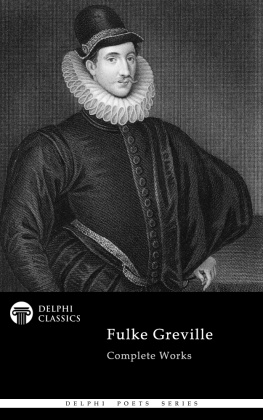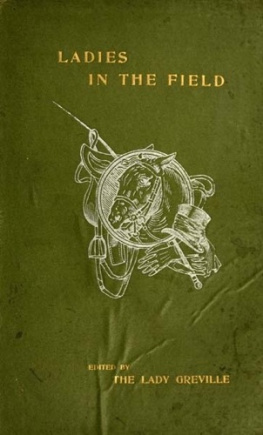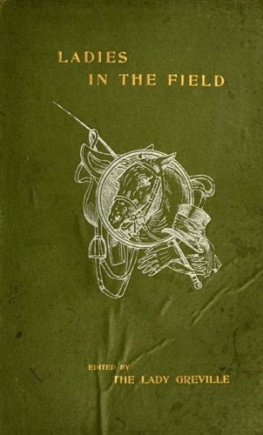TRANSCRIBER'S NOTES
The Third Part of The Greville Memoirs contains two volumes, of which this is the first. The second volume is available from Proj Gutenberg at http://www.gutenberg.org/ebooks/40681
All spellings are as they appeared in the original text save for those that were obviously printer's errors.
All phrases that are in languages other than English have been italicised for consistency.
There are two styles of footnotes used in this work. Footnotes enclosed in square brackets [ ] are by the editor. Footnotes not enclosed in square brackets are by the author.
1 [This note is by the editor.]
2 This note is by the author.
For ease of reference, the index to both volumes of this diary has been added. It originally appeared at the end of volume 2. References in the index to the second volume have been cross-linked to the file at Proj Gutenberg.
PREFACE
OF THE EDITOR
TO THE THIRD PART OF THIS JOURNAL.
It appears to be unnecessary and inexpedient to delay the publication of the last portion of these papers, which contain some record of the events occurring between the year 1852 and the close of the year 1860, a period already remote from the present time, and relating almost exclusively to men of the last generation. I have little to add to the notices prefixed by me to the two preceding portions of this work, but I am grateful for the length of days which has enabled me to complete the task confided to me by Mr. Greville three and twenty years ago, and to leave behind me a record of that delightful company to which I was bound by the closest ties of intimacy and friendship. On looking back upon the first half of the present century, I believe that we were too unconscious of the exceptional privileges we enjoyed, and that we did not sufficiently appreciate the remarkable gifts of the statesmen, the orators, the historians, the poets, and the wits who shed an incomparable lustre on the politics, the literature, and the social intercourse of those years. Of these personages some traces are to be found in the preceding volumes and in these pages.
Nor am I less grateful for the reception this publication has met with from the world, which has far surpassed the modest expectations of the author, and has at last conveyed to the reader a just estimate of the integrity and ability with which these Journals were written. They bear evident marks of the changes which are wrought in a man's character and judgements by the experience of life and the course of years; and they fall naturally into the three periods or divisions of Mr. Greville's life which I was led from other causes to adopt. In the first part he appears as a man of fashion and of pleasure, plunged, as was not inconsistent with his age and his social position, in the dissipation and the amusements of the day; but he was beginning to get tired of them. In the second part he enters with all the energy of which he was capable, though shackled by his official position, upon the great political struggles of the timethe earnest advocate of peace, of moderation, of justice, and of liberal principlesregarding with a discriminating eye and with some severity of judgement the actions of men swayed by motives of ambition and vanity, from which he was himself free. This was the most active period of his life. But years advanced, and with age the infirmities from which he had always suffered withdrew him more and more from society, and deprived him of many of those sources of intelligence which had been so freely opened to him. Hence it is possible that the volumes now published contain less of novelty and original information than the preceding portions of the work. But on the other hand, the events recorded in them are of a more momentous characterthe re-establishment of the French Empire, the Imperial Court, the Crimean War, the Indian Mutiny, and the Italian War, are more interesting than the rise or fall of a Ministry; and it is curious to note precisely the effect produced at the time on the mind of a contemporary observer. No one was more conscious of the incompleteness of these Journals, and of a certain roughness, due to the impromptu character of a manuscript hastily written down, and rarely corrected, than the author of them. He was more disposed to underrate their merit, as appears from his concluding remarks, than to exaggerate their importance. But the public have judged of them more favourably; and if he entertained a hope that he might contribute some pages to the record of his times and the literature of his country, that hope was not altogether vain.
HENRY REEVE.
January 1887.
CONTENTS
OF
THE FIRST VOLUME.
Divisions of the Liberal PartyLord Lansdowne as Head of a Liberal GovernmentHostility of the RadicalsNational DefencesLord John Russell's Literary PursuitsThe Queen's SpeechThe PeelitesProtection abandonedDuke of Wellington's FuneralMr. Villiers' MotionDisraeli's Panegyric on WellingtonDeath of Miss BerryThe Division on the ResolutionDisraeli's BudgetLord Palmerston's PositionThe Division on the BudgetLord Derby resignsLiberal NegotiationsFormation of Lord Aberdeen's GovernmentLord St. LeonardsTone of the ConservativesLord Clanricarde and the Irish BrigadeViolence of the ToriesLord Palmerston agrees to join the GovernmentThe Aberdeen CabinetFirst Appearance of the New MinistryIrritation of the Whigs
A Royal Commission on ReformM. de Flahault on the Emperor NapoleonLord John's BlunderDisraeli's Negotiation with the Irish MembersLord Beauvale's DeathLady Beauvale's GriefNapoleon III. and Mdlle. de MontijoParliament meetsThe Emperor's MarriageDisraeli's Attack on Sir C. WoodDislike of Mr. DisraeliLord John Russell leaves the Foreign OfficeLord Stanley's Liberal VotesDisraeli's Opinion of his ColleaguesThe Government in Smooth WaterEngland unpopular abroadMassimo d'AzeglioThe Austrians in ItalyThe Bishop of LincolnThe Duke of Bedford's PapersLord Palmerston leads the HouseSocial AmenitiesRancour of Northern Powers against EnglandFriendly Resolution of the Emperor Napoleon III.Difficulties at HomeThe India BillThe Eastern QuestionThe Czar's ProposalsRussian AssurancesThe Royal Family
Weakness of the GovernmentGladstone's BudgetA Conversation with DisraeliSuicidal Conduct of the ToriesTheir IrritationA Charge against Mr. Gladstone defeatedThe Stafford CommitteeHarmony of the GovernmentElectoral CorruptionImpending WarSuccess of the GovernmentMacaulay's Speech on the Judges' Exclusion BillErroneous Predictions from ParisUnsettled Policy as to the WarLord John's Anti-Catholic SpeechThe English and French Fleets sail for the DardanellesConduct of AustriaRussia means WarAttacks by the OppositionExplanations desiredAttempted MediationLord Aberdeen's Confidence shakenDivisions of OpinionTerms of AccommodationLord Palmerston's ViewsProspect of PeaceDivision in the Lords on the Succession Duties BillFriendly Relations of Lord Palmerston and Lord ClarendonFears of WarHopes of PeaceLord Palmerston and Mr. CobdenRejection of the Vienna NoteLord Palmerston courted by the ToriesLord John Russell's PositionThe Duke of Bedford's part in the last CrisisDangers at ConstantinopleLord Stratford's InfluenceSuspected Intrigue of France and RussiaLord Palmerston goes to BalmoralSir James Graham's ViewLord Stratford's ConductImportance of the Vienna NoteA Cabinet summoned










